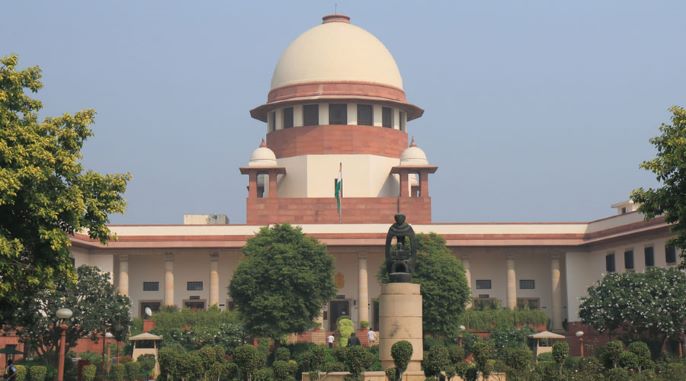
The Supreme Court has issued notice in the Special Leave Petition (SLP) filed by Madhya Pradesh against the High Court’s order restraining coercive action against those who contravene section 10 of the Madhya Pradesh Freedom of Religion Act, 2021. The bench of Justices M. R. Shah and C. T. Ravikumar refused to stay the operation of the high court order.
The high court had determined that the petitioners had established a strong prima facie case for the granting of temporary protection in relation to the marriage of two adult citizens who are doing so of their own free will and against any coercive action for violating Section 10 of the Act.
Section 10 of the Act requires anyone who wishes to convert to give a declaration 60 days in advance to the District Magistrate stating that he is converting of his own free will without any force, coercion, undue influence or allurement. Any priest/any person carrying out or organizing the conversion is also required to make such declaration; failing which the priest or person organising the conversion can be punished for minimum 3 years and maximum 5 years with fine of Rs. 50,000.
When Solicitor General Tushar Mehta insisted on granting stay on the High Court’s order saying that it is erroneous, the bench said that it would be tantamount to allowing the SLP.
SG Mehta argued that section 5 of the earlier legislation namely the MP Dharma Swatantrya Adhiniyam 1968 was held as valid by the Supreme Court in Rev Stanislaus vs Madhya Pradesh, 1977 SCR (2) 611 and section 10 of the present Act reads the same. Hence, he argued, that the High Court erred in staying the operation of section 10. The bench however pointed out that the entire section was not stayed and only penal provision was stayed.
He further insisted that the bench at least direct that persons intending to convert must intimate the DM and staying of the order would also mean the same. The bench however pointed out that the subsection 2 has penal provisions against the priest or anyone who converts someone. As per LiveLaw report, the courtroom exchange entailed:
SG: “If I am a priest, if I have to participate in an illegal conversion, penal provision would have to be there”
Justice Shah: “But all conversions cannot be said to be illegal conversions”.
The court ultimately refused to stay and issued notice while giving February 7 as the next date for the matter
About the Madhya Pradesh Freedom of Religion Act, 2021
The Madhya Pradesh (MP) Govt promulgated the MP Freedom of Religion Ordinance that was passed through a Special Session of the State Assembly on December 27, 2020 and officially notified in the State Gazette on January 9, 2021. While the state has provided the objective behind bringing this act to restrain any kind of forceful and illegal religious conversions done by religious organizations or extremist groups, in reality, this Act is just a tool for the harassment of young vulnerable couples who are deprived of their right to marry any individual on their free will.
The MP Act also states that any marriage performed in contravention of section 3, which prohibits unlawful conversion from one religion to another, will be deemed to be null and void.
Section 10 of the Act requires an individual to give a declaration 60 days in advance to the DM that conversion is being done without any force, coercion, undue influence or allurement. The religious priest/convertor is required to give a similar notice 60 days in advance.
In December 2020, a PIL was filed by Citizens for Justice and Peace against the then Uttar Pradesh Prohibition of Unlawful Conversion of Religion Law 2020 and the Uttarakhand Freedom of Religion Act, 2018. Later, in February 2021, CJP then approached the Supreme Court seeking permission to challenge Love-jihad laws passed by Himachal Pradesh and Madhya Pradesh in its same plea. On January 2, the Supreme Court bench led by CJI DY Chandrachud heard the matter and sought clarity on petitions pending before high courts. The petition will be heard on January 16.
Related:
No coercive action against voluntary religious conversion: MP High Court
CJP Pleas against ‘love jihad’ laws: SC seeks details on cases before HCs
Anti-Conversion Laws: The trope of forced religious conversions
Uttarakhand further amends its ‘anti-conversion law, maximum sentence up to 10 years